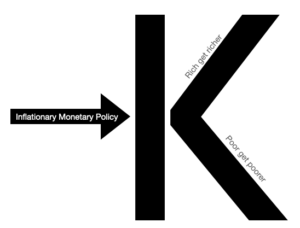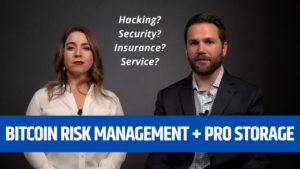I ran across something today that may surprise you. I was reminded of why I founded the IRA Association of America. I hear some of the craziest things from prospects and new customers, such as
“My understanding is that my IRA can loan money to a Corporation I own part of.”
“I’ve heard that my company can do business with my IRA if things are structured right.”
First of all, these statements are both incorrect, and would each result in a prohibited transaction, triggering hefty tax penalties. Now, when I hear these type of statements I wonder where they come from. I’ve always figured that they must originate from various new, inexperienced companies with educational materials that are simply inaccurate. Today, I found out that I’m half correct. It is coming from inaccurate materials and sources, but to my surprise, these sources aren’t always new and inexperienced.
This post is in reference to an LLC facilitator called CHECKBOOK IRA located at www.checkbookira.net and www.checkbookira.com. These guys may be familiar to you because, at the time of this writing and for the past several years, these web sites come up in search engine results for terms like “ira llc” and “self directed ira”. Now, I’ve never met or spoken with the owner, Steve Sheperd, so I can only comment based on the information on his web sites.
Currently, if you go to CHECKBOOKIRA.net and click “legal rulings” it links to a ruling that says “Your IRA can make a loan to a company owned less than 50% by the IRA owner.” This caught my attention because the claim was contrary to the understanding given to me from seasoned Department of Labor agents. So I clicked the link and read the entire document. (It’s important to note that in 1978 the Presidential Reorganization Plan transferred the authority and responsibility of interpreting the prohibited transactions code [IRC 4975] from the Secretary of Treasury [IRS] to the Secretary of Labor [DOL]). This document was a written opinion from DOL. Somebody basically asked DOL if it would be okay for their IRA to loan $500,000 to a Corporation of which they owned 46%. CHECKBOOKIRA.net claims the document said DOL’s response was “yes”, but it was in fact “no”. The opinion letter’s conclusion can be found in the second to last paragraph:
“Accordingly, a prohibited use of plan assets for the benefit of a disqualified person under section 4975(c)(1)(D) or an act of self-dealing under section 4975(c)(1)(E) is likely to result if Mr. Darragh directs the IRA to loan funds to the Corporation. [Emphasis added]”
I know the sentence is a little hairy. Let me further translate: “A prohibited transaction will occur if Mr Darragh (the person requesting the opinion and permission) uses his IRA to loan money to his Corporation.” How many people have found CHECKBOOKIRA from a search engine and used them as a source of information or services? Clearly, CHECKBOOKIRA mistakenly believes that the above mentioned transaction is allowed. I’m sure many people have done such a transaction based on input from them and unintentionally entered into a prohibited transaction. I would suggest those people pursue one of the voluntary correction programs available through IRS or DOL.
Astoundingly, a second instance of misinformation exists on the exact same page. There is another link (under “Legal Rulings”) described as “Your IRA is allowed to own a Corporation”. That claim itself is correct, but when you follow the link you reach a document that claims that a person can instruct their Corporation (which they own and control) to enter into a service contract with a foreign corporation owned by their IRA. This claim is incorrect. This document is simply a Field Service Advice bulletin from the IRS. The conclusion of the FSA itself is related to the presence of a gift tax because of transfers of rights to profits to a person’s children for no consideration. The key item in this FSA letter is that the authority and obligation to interpret prohibited transactions (abbr PT) was transferred from the IRS to the DOL in 1978. It is not within the authority of the IRS to interpret Section 4975 of the Internal Revenue Code. Truthfully, I didn’t take the time to read this lengthy FSA in its entirety. But, best I can tell, the FSA doesn’t mention anything about PT interpretations. it does, however, appear that CHECKBOOKIRA (or some other non-official source) put their own interpretation on top of the FSA for the lazy reader. That interpretation does imply that the proposed transaction is acceptable and compliant, when in fact it violates PT rules.
The bigger issue at hand is “How do I know which information is reliable?” Previously, there was no way to know at all. As of February 2007, though, the IRA Association of America became the only organization to address the matter. IRAAA holds its members to the highest standards of knowledge, ethics, and conduct. It is a nonprofit, and dozens of professionals from various fields proudly bear IRAAA membership. As a collective effort, it is much easier to identify and fix dangerous, erroneous claims within educational materials. If one of our members were to recklessly provide the kind of grossly inaccurate information cited earlier, their membership would be suspended until the Ethics & Conduct Committee examines the evidence and reaches a resolution, possibly revoking that person’s membership if there is believed to be significant negligence.
In developing and delivering products, services, and information through Nabers Group, I collaborate with competent attorneys and other professional advisers before we publish new materials on new topics. I also meet with the Department of Labor annually in Washington, D.C. to get feedback and guidance straight from the horse’s mouth. Clearly, some of my competitors do not exercise such prudence (in fact DOL agents have told me that I’m the first person from the Self Directed IRA/401k industry to visit them in an effort to improve compliance and education). The bottom line is admittedly a bit of self promotion – Don’t do business with any self directed IRA/401k service provider who isn’t currently an IRAAA member or willing to become one. For the record, this “self promotion” is truly related to a hope for a healthy, thriving industry with minimal misinformation and predatory practices. I do not receive a salary or compensation of any kind from IRAAA, and myself and our small staff currently operate IRAAA as a volunteer effort.
It’s not my goal to be malicious towards the company earlier mentioned, but it’s important for there to be an awareness of what’s going on out there. The fun part of all of this is finding and making private investments that are profitable and safe. That’s the part I like to focus on, but you can’t make IRA investments if your entire IRA becomes a taxable distribution due to an avoidable mistake. Utilizing IRAAA members helps to ensure you are doing business with a high caliber professional.


